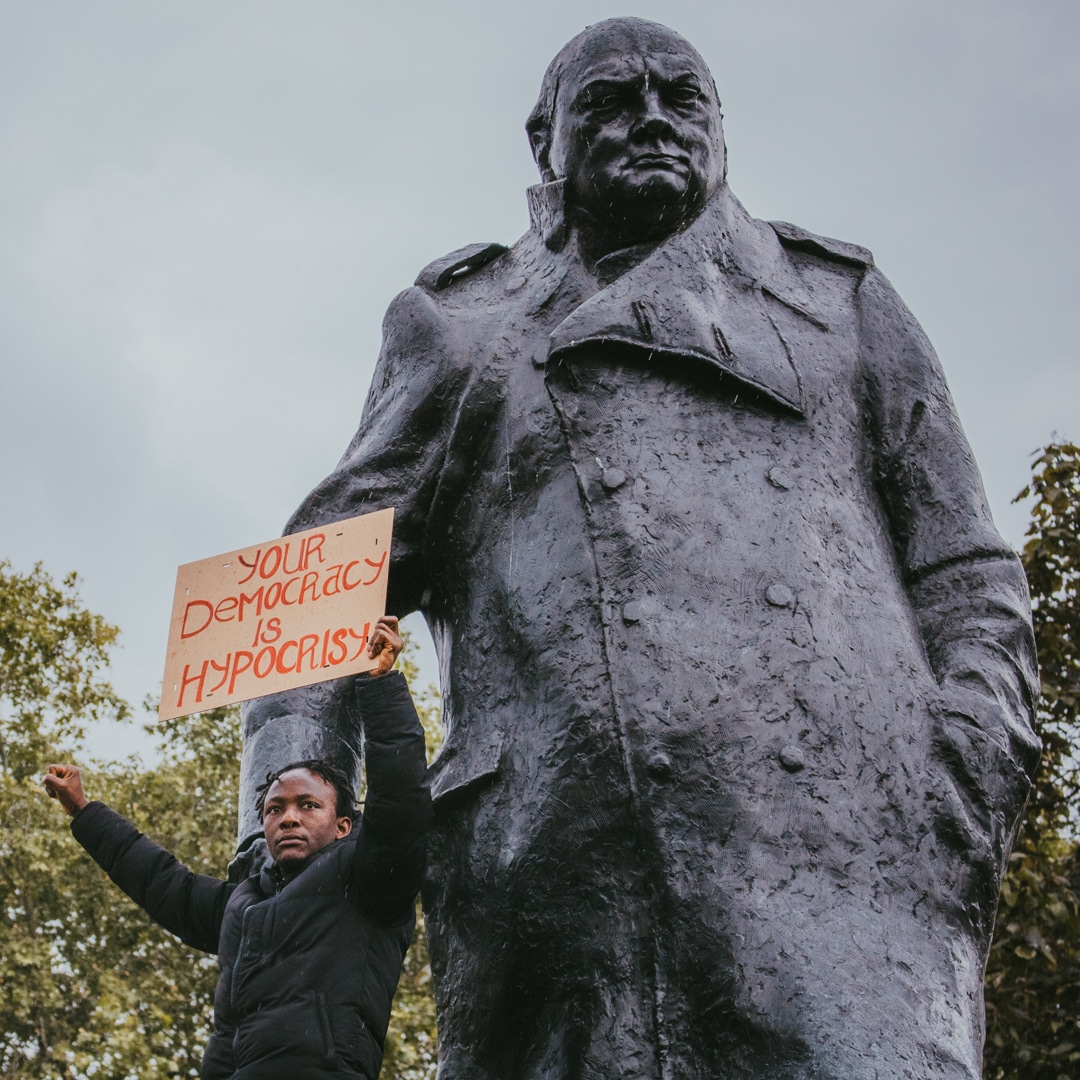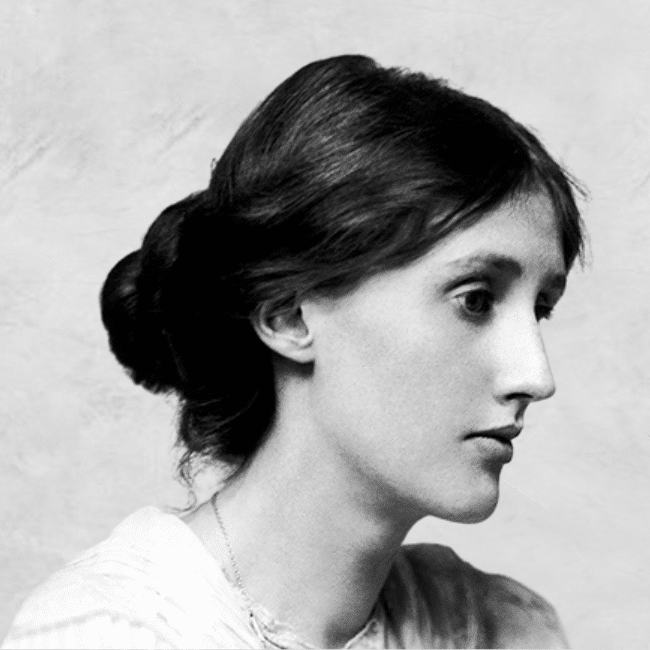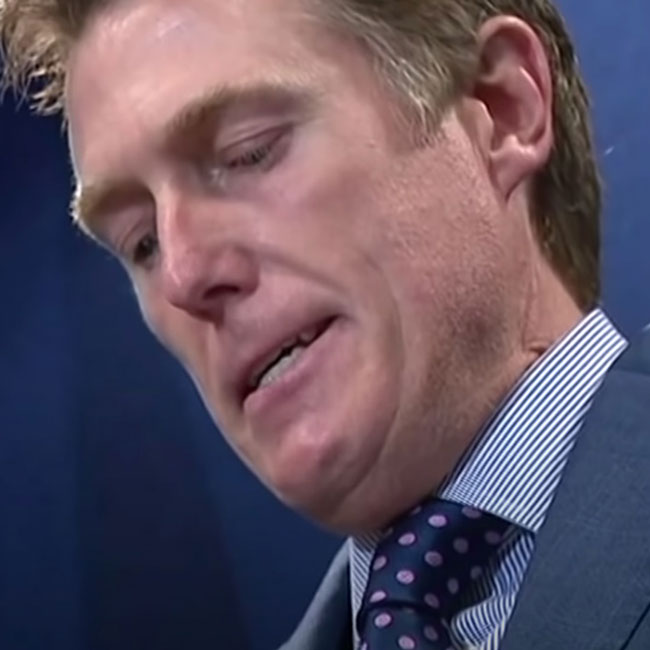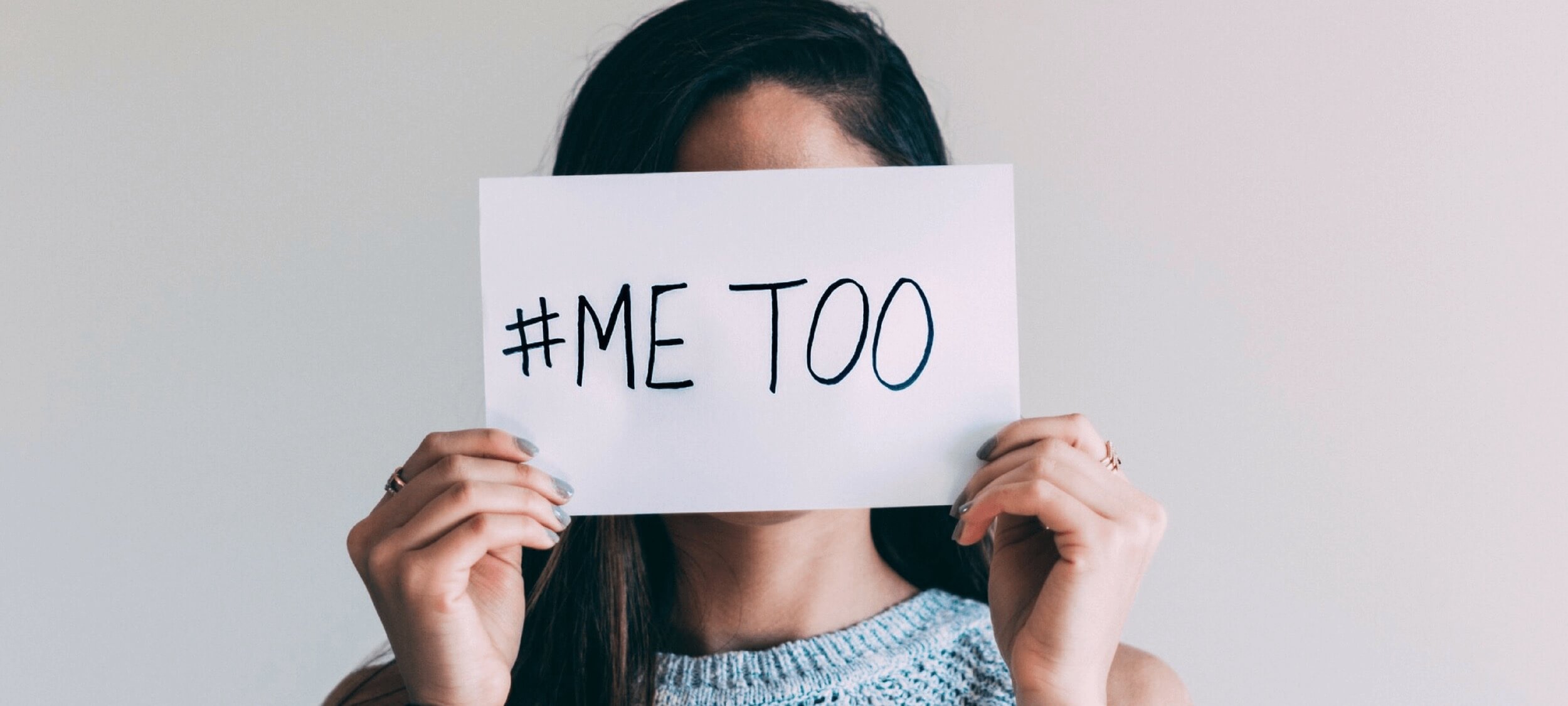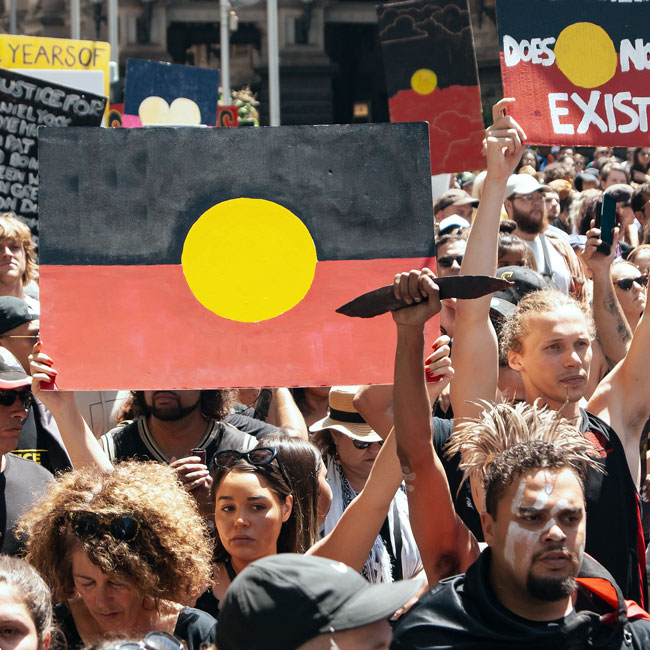Vaccines: compulsory or conditional?

Vaccines: compulsory or conditional?
Opinion + AnalysisHealth + WellbeingPolitics + Human Rights
BY Simon Longstaff 16 AUG 2021
One of the most significant ethical issues to confront the community in the current phase of the COVID-19 pandemic concerns the extent to which people should be required to achieve full vaccination.
The debate mirrors earlier discussions about where to set the balance between public safety and personal liberty. In the wake of events such as the 9/11 terrorist attack or the Bali bombing, successive governments introduced legislation to curb civil liberties that, in some cases, had been fought for centuries ago – with the shedding of much blood in the name of liberty.
However, there was scarcely a whimper of protest from conservatives at that time, or since. Former Prime Minister, Tony Abbott, spoke for many government leaders when, in February of 2015, he said that, “There is no greater responsibility – on me – on the government – than keeping you safe”.
That formula has been invoked time and time again in response to criticism from those who have questioned the erosion of civil liberties. Once again, Tony Abbott outlined the rationale for preferring public safety over personal liberty, noting that one or two people could pose a threat to the community. In the same national security statement quoted above, Mr Abbott when on to say, “But frankly, I’d rather lose a case, than lose a life.”
For the most part, the community has accepted this set of prescriptions. It is against this background that one needs to understand the approach of government to the menace posed by COVID – where lives can be threatened by the actions of just one or two individuals – including those who are free from malicious intent.
As noted above, I cannot think of single conservative commentator who took Mr Abbott (or other leaders) to task for their preference of public safety over personal liberty. Yet, many of these same commentators are lining up to condemn politicians who take an identical stance in response to the proportionately greater risk to life posed by COVID-19. In doing so, some have decided to oppose a range of government measures that they think identify as violating individual liberties – ranging from ‘lockdowns’ to vaccination.
Unhelpfully, the debate has been skewed by the failure to make a clear distinction between different types of restriction.
As far as I know, there has been no serious proposal – from government or the private sector – for ‘compulsory vaccinations’. Yet, this ‘red herring’ is causing widespread debate and a fair measure of concern.
So, how should we think about the issue of vaccinations?
It seems to me that the greatest source of confusion (and concern) lies in the failure to distinguish between three types of requirement: compulsory, optional and conditional.
Compulsory requirements are enforced – and those that contravene are subject to punishment. There are very few compulsory requirements in liberal democracies. Examples in Australia include: the requirement for children to be educated (e.g. attend school); and the requirement that adult citizens attend voting places and receive a ballot paper (whether they cast a valid vote or not is up to them). Most recently, we have had genuinely compulsory ‘lockdowns’. If you fail to abide by the rules, then you are subject to formal punishment by the state.
Optional requirements leave each person to decide whether or not to engage in the specified activity – without consequence. As such, they are generally held to be uncontroversial.
Conditional requirements are far more common. Typically, they are in the form of: ‘if … then’. For example, ‘if you wish to drive a car … then you must be licensed to do so’. Or, ‘if you wish to enter this mine … then you must wear safety equipment’. As will be evident, no person is required to drive a car or enter a mine site. To do so is a matter of choice. In this lies the principal difference between ‘conditional’ and ‘compulsory’ requirements.
I have not really heard anyone make the case for ‘compulsory’ vaccination. Rather, there are arguments being made in favour of vaccination as a ‘conditional requirement’. So, how might such a requirement be justified?
First, it is easy to justify such a requirement in order to protect the health and safety of a community or a workplace. This was the line of argument that Peter Singer attributed to John Stuart Mill, in his recent opinion piece in The Sydney Morning Herald. Second, one can also justify a conditional requirement as a precondition for being able to perform a function. Third, one can set a condition that requires a person not to render themselves either unsafe or unable to perform their role. For example, a mining company might require an employee to wear protective clothing or sunscreen. This is not solely to keep the employee safe. It also ensures that the person remains fit (physically able) to perform their role, free from injury.
The same thinking can also be extended to the idea that an employee should remain fit (physically able) to perform their role free from disease. As noted above, this conditional requirement could be seen as being directed towards the welfare of the employee. Or it could be a requirement for the benefit of the employer.
In either case, no person is compelled to work under such conditions. If they are not prepared to accept the condition, then they may choose not to work for an employer imposing such a requirement. As noted above, this is common and uncontroversial in many, many cases.
A final note: nothing here has any implications for what a person should or should not believe. For example, a person may have a ‘magical belief’ that they are protected from the risk of injury or disease, yet still be required to wear safety equipment. A person may believe that COVID-19 is a ‘hoax’ yet still have to meet the conditional requirement that they be vaccinated.
Governments, companies, etc. should not be in the business of imposing beliefs on others. They can seek to persuade – but nothing more. However, they have every right to set conditions on behaviour and then leave it to people to choose whether or not to meet the conditional requirements that have been set.
Of course, this leaves open one final possibility – that a person may be unable to meet the condition through no fault of their own. For example, some people cannot operate the pedals on a car – yet may still wish to drive. The fact that they cannot operate an unmodified vehicle is not a matter of choice (or an absence of will) – it is a physical impossibility. In such cases, society might try to develop mechanisms (e.g. modified control systems) to offset the limitations. However, this will not always be possible.
Should an employer set vaccination as a condition of employment?
The decision to undertake any kind of medical procedure is a serious one.
Normally, this would be a private matter – especially when it relates to the health of an individual. However, there are multiple precedents for setting conditional requirements of a kind that involve medical procedures, including vaccination. For example, as things stand, one cannot travel to certain countries without vaccination (yellow fever). But to what extent, if any, might the context of employment render a different ethical outcome? For example, should employers apply a ‘test of relevance’ (e.g. different requirements for people working in aged care/disability sectors than, say, for construction workers)?
Some might argue that there is room for conscientious objection – but it has always been a mark of genuine cases, of conscientious objection, that people be prepared to accept the consequences of acting in conformance with their conscience. Also, the duty is to act on a well-informed conscience. That is, one cannot claim the protections or validations of conscience when based in proven error (e.g. in the belief that vaccines do not work, that they contain micro-chips, etc.).
Thus, when it comes to balancing safety vs freedom it should be recognised that both values are of importance. However, good health is an enabler of freedom. Therefore, freedom from the risk of infection (e.g. amongst employees) should be given priority. This would allow for the establishment of ‘conditional requirements’ (such as in the case of a vaccine passport). But these requirements should be structured as the minimum necessary to secure safety. For example, if the job can be done while working from home, then that should be allowed amongst those who choose not to be vaccinated. On the other hand, if the job requires contact with others (if this is strictly necessary), then a refusal to be vaccinated would be equivalent to refusing to take an anti-doping blood test (in elite sports) or to wear safety equipment in a mine.
What questions should employers consider about vaccination?
- Does vaccination significantly reduce the risk of transmission to others? If so, does the employer have a duty to limit the risk of infection faced by its employees (as a whole), customers, etc.?
- Does COVID present a risk that an infected employee will be unable to perform their duties? If so, is the risk sufficient to justify a conditional requirement that the employee protect themselves from this harm?
- What exceptions (if any) can be made for people who are unable to meet the conditional requirement (e.g. medically unfit to be vaccinated)? To what extent can the person’s work practices be managed to take account of this limitation (e.g. special facilities, use of additional PPE, etc.) so as to balance the interests of the individual and the wider group?
Conditional requirements are an everyday occurrence. They range from clothing requirements (e.g. to enter certain places), to the possession of licences, to the need for vaccinations when travelling to certain countries overseas. Some of these requirements are established to reflect cultural preferences, or as indicators of respect for particular institutions or places or as being necessary to realise values like those of ‘safety’, ‘efficiency’, etc.
In the end, when values compete – as in the case of ‘public safety’ vs ‘personal liberty’ the best approach is to seek to make every effort to minimise the damage to one value to the greatest extent possible while realising the other. It’s an approach that I think we failed to heed when it came to our nation’s response to the threat posed by terrorism – sowing the seeds that we seem to be harvesting today.
Perhaps this time round, we can do better.
As a small beginning, I wonder if we can at least drop the reference to so-called ‘compulsory’ vaccinations and instead focus on what might count as a reasonable, conditional requirement.
Ethics in your inbox.
Get the latest inspiration, intelligence, events & more.
By signing up you agree to our privacy policy
You might be interested in…
Opinion + Analysis
Politics + Human Rights
An angry electorate
Opinion + Analysis
Business + Leadership, Politics + Human Rights, Relationships
It’s time to increase racial literacy within our organisations
Explainer
Politics + Human Rights
Thought Experiment: The famous violinist
Opinion + Analysis
Business + Leadership, Politics + Human Rights, Society + Culture
Drawing a line on corruption: Operation eclipse submission
BY Simon Longstaff
Simon Longstaff began his working life on Groote Eylandt in the Northern Territory of Australia. He is proud of his kinship ties to the Anindilyakwa people. After a period studying law in Sydney and teaching in Tasmania, he pursued postgraduate studies as a Member of Magdalene College, Cambridge. In 1991, Simon commenced his work as the first Executive Director of The Ethics Centre. In 2013, he was made an officer of the Order of Australia (AO) for “distinguished service to the community through the promotion of ethical standards in governance and business, to improving corporate responsibility, and to philosophy.” Simon is an Adjunct Professor of the Australian Graduate School of Management at UNSW, a Fellow of CPA Australia, the Royal Society of NSW and the Australian Risk Policy Institute.
3 Questions, 2 jabs, 1 Millennial
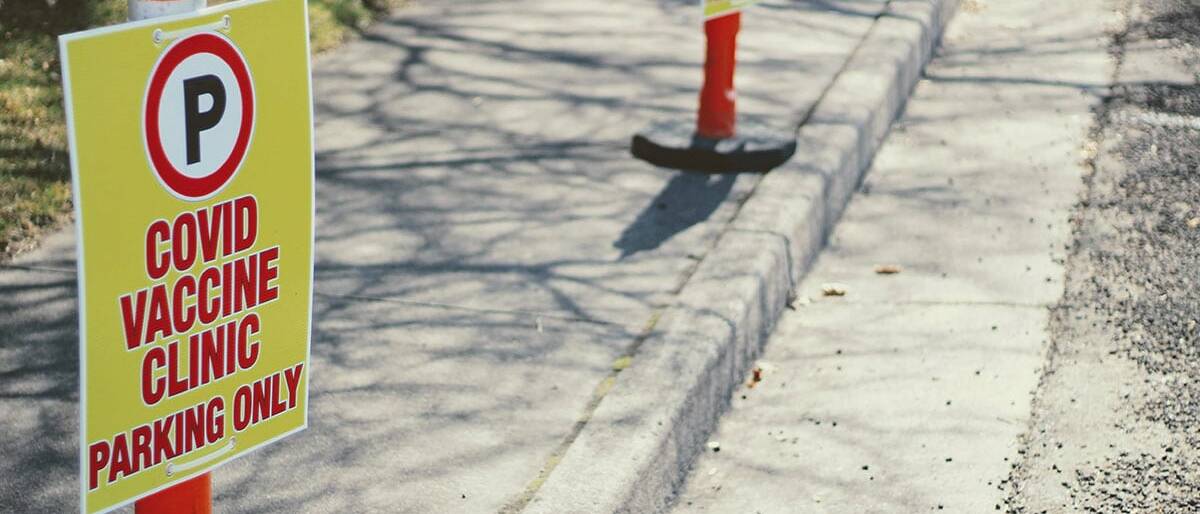
3 Questions, 2 jabs, 1 Millennial
Opinion + AnalysisHealth + WellbeingPolitics + Human Rights
BY Rebecca Blake 28 JUL 2021
What started out as a trip to get my flu shot turned into a quick, loaded political decision.
Fortunately, by stopping and reflecting, I left politics to the pollies and made my decision based on ethics.
When Prime Minister Scott Morrison announced that anyone under 40 could approach their GP to get the AstraZeneca vaccine, I decided to act. We were not long into Sydney’s second lockdown and already I was feeling the frustration of isolation. I called my GP and was told to book a consultation first before making any appointments for the jab. I decided to make a day of it and booked both my consultation and flu shot as one appointment. Any outing in Covid times is a highlight, am I right?
One week later I sat down in front of my GP. He said, “I know you’re here for your flu shot but given the situation we’re in, I strongly recommend you get the AstraZeneca. What do you want to do?” In the space of 30 seconds I had to decide whether to AZ now, or to Pfizer at some time in the future, date to be determined. The challenge? Putting aside the loaded politics and making an ethical choice.
I am aware I am privileged in being able to make this choice in the first place; I have the means to transport myself to and from the clinic, English is my first language so I can understand the information and make an informed consent. I am fit and healthy and being in a medical clinic, whilst not always comfortable, is not a traumatic experience for me. None the less given the bad rap the AZ vaccine has received, it was a little daunting.
So here are three questions this Millennial asked themself about getting the AZ vaccine now or waiting for Pfizer:
1. Who am I doing this for?
I am fully aware that the Pfizer vaccine is the preferred jab given there are some risks for young people when it comes to taking the AstraZeneca. A few friends have managed to somehow obtain a Pfizer vaccination through connections, either that or some back-alley vaccine deal (letting my imagination run wild). Black market fantasies aside, when it came to my decision making, I chose the non-preferred option as there was plenty of AZ supply to go around. This choice was my contribution to ensuring the small amounts of Pfizer are provided to those who need it most urgently.
Of course, I could wait until there is plenty of supply of Pfizer. But given that medical advice is that the vaccine reduces transmission, the decision to delay can impact the people around me, people who I love the most, such as my partner who is a teacher. I have friends who are immune-suppressed, and family members who are elderly. I feel, the more we all do to suppress transmission in the community, the safer they will be.
2. What does the best outcome look like? In the short term? In the long term?
Recently the government released an advertising campaign to encourage the public to get vaccinated. Most have seen the footage of a young woman, around my age, on a ventilator struggling to breathe and becoming increasingly distressed. There has been a lot of discussion concerning that this advert was aimed at young people, the very people who can’t get hold of the recommended vaccine for this age group. Like many, I find myself repeatedly frustrated about the vaccine roll out.
But there are actions I could do now to play my part in preventing this lockdown from lasting any longer. I have friends in the UK, many of whom have had the AZ vaccine. I want to do everything I can to help get life back to normal. I feel an overwhelming responsibility as a citizen to do what I can to prevent the spread, protect myself and fellow neighbour, and avoid the possibility of passing it on to someone I love. I channelled this frustration into an action that I as an individual can take. My decision to take the AstraZeneca was my way of contributing in some small way to increasing acceptance of a mass vaccination campaign that will improve the lives of the majority in the long term. Whilst it’s reported there are some small amounts of discomfort (fever, body aches and chills for the first 24 hours post vaccine) it’s a short-term pain for a long-term great gain.
3. What are the risks involved?
My anxiety does have its moments and I can catastrophise at the drop of a hat. The human brain likes to predict the future so it can be prepared. In moments where my anxiety flares up, I try and remember it’s just my body trying to protect itself. We tend to focus on the negatives – an easy thing to do during a global pandemic – particularly when combined with media reports of the risks and misinformation across social media.
Negativity bias is rife and it’s easy for us to be more motivated or affected by negative information than positive.
Faced with needing to make a quick decision I relied on the information given to me by my GP in the consultation.
The consultation involves your doctor thoroughly taking you through the potential risks of the AstraZeneca jab. The AZ vaccine has been associated with a rare side effect called thrombosis with thrombocytopenia syndrome (TTS). According to the Australian Government Department of Health website (www.health.gov.au), in every 1,000,000 cases there is a 3.1 chance of TTS for individuals under 50. Given the current situation in Sydney I felt the risks of COVID far outweighed the risks of adverse side effects from the vaccine. Sure, we do not know what the long-term vaccine effects could be, but it was a chance to consider the trade off between facts and knowledge and the assumptions that there might be some long-term effects from the vaccine. For now, I am sticking with my faith and trust in the medical industry. They have been working hard these past 18 months and have been right so far. Plus vaccines are not new, the first recorded use is from the 16th century in China for smallpox.
So what did I choose …
In the end, after weighing up these questions I was stoked to get poked. By the evening I was hit with the prewarned symptoms of fever and body aches but by the time 48 hours had passed, I was fit as a fiddle. I was surprised by how many work colleagues congratulated me saying how brave I was or how proud they were to know a young person playing their part to combat this disease.
One small disappointment. I didn’t get one of those, “I’ve been vaccinated stickers.” I may be 30 but the six-year-old in me was severely disappointed. Not even a lollipop… so if you choose to get the AZ vaccine… at least bring your own post poke treat.
Ethics in your inbox.
Get the latest inspiration, intelligence, events & more.
By signing up you agree to our privacy policy
You might be interested in…
Opinion + Analysis
Business + Leadership, Health + Wellbeing, Relationships
Office flings and firings
Opinion + Analysis
Health + Wellbeing, Relationships
The ethics of smacking children
Opinion + Analysis
Politics + Human Rights
The Constitution is incomplete. So let’s finish the job
Opinion + Analysis
Business + Leadership, Politics + Human Rights
Democracy is still the least-worst option we have
BY Rebecca Blake
Rebecca is a writer, producer, director and theatre maker. Alongside their work with The Ethics Centre they are Artistic Associate and board member with Kings Cross Theatre. Prior to this, they were an Artist in Residence with the Barbican Centre and Rich Mix Theatre in London.
Libertarianism and the limits of freedom

Libertarianism and the limits of freedom
Opinion + AnalysisPolitics + Human Rights
BY Joshua Pearl 20 JUL 2021
Libertarianism is the political philosophy that champions individual freedom. But does it really love freedom as much as it claims?
Governments interfere with our lives all the time. They punish us when we say things that they (or others) consider offensive. They make us save money we can only access if we reach a certain age. They engage police that can stop us in the street. They require us to inoculate against disease – even if it is against our wishes. And they demand we give away some of our salaries and assets (in the form of taxes), to be spent on things that may neither benefit nor be agreeable to us.
These are all fairly standard government interferences, even before we consider the more extreme restrictions that we have seen imposed throughout the COVID-19 pandemic.
Most political philosophies permit state interference, with some permitting quite a lot. Social contract theories, from Hobbes in the 17th century to Rawls in the 20th century, contend that citizens have consented either implicitly or explicitly, to give up certain freedoms, in exchange for protection of their remaining freedoms. However, not all political philosophies are as sanguine.
Libertarianism, which champions individual freedom, argues government interference is not only a pesky annoyance, but a violation of our fundamental rights. Libertarians contend that government interference is unjust even if intervention benefits the person being interfered with. Extreme libertarians would even support the right of a person to sell themselves into slavery – and would object to any government that seeks to prevent this.
Libertarianism has its roots in the works of the seventeenth and eighteenth-century liberal philosophers: John Locke, David Hume and Adam Smith. However, modern libertarians find much of their inspiration from Robert Nozick’s Anarchy, State and Utopia (1974). Nozick argues that individuals have strong self-ownership and property rights, rights that cannot be violated. Freedom, the core tenet of libertarianism, is the fundamental good to be affirmed and protected. On this view, we are all free (and equal) individuals, with the uninhibited right to make individual decisions with regard to our lives, our liberty, and the ownership of our property.
Libertarians, however are not anarchists. They do believe in the existence of the state. A libertarian state is one that performs the strictly limited roles of protecting citizens’ self-ownership and property rights and rectifying past transgressions of those rights.
Government’s role is to protect people’s freedom to choose happiness of a kind that is defined by each individual, not as dictated by others. If an individual wants to follow a particular god, that is their choice. If a person wants to buy a particular good or service on the free market, so let them. If a woman wants to marry multiple husbands, that is up to her.
For most right-libertarians, original property ownership (that is staking an ownership on unowned natural resources) is allowable, subject to the somewhat ambiguous Lockean proviso, that “enough and is good” is left for others. Nozick also asserted that when staking an ownership claim, no-one else should be made worse-off than they would otherwise be, which allows for significant variation in original property ownership. Left-libertarians, distinguished from right-libertarians by the very feature of original property ownership, claim everyone has a pro rata right to natural resources such as land, air and minerals.
Libertarianism’s absolute focus on individual freedom is attractive and makes for a consistent and simple political philosophy. It also has broad appeal, attracting strange ideological bedfellows.
Social progressives find attractive the social freedom associated with libertarianism. Governments have no right to punish an individual for taking recreational drugs; it is impermissible for the state to ban marriage between same sex couples; wrong for a country to wage a foreign war or conscript people into the army; and forbidden for government to ban, say, assisted dying.
Economic conservatives are attracted to the libertarian stance that it is wrong for government to take away assets in the form of an inheritance tax; impermissible for the state to impose an income tax for the purpose of redistribution. Indeed, the argument that government has no right to interfere in transactions between consenting adults, underpins the fundamental argument for many free market economists. Those on both the left and right are attracted to the argument that governments have no right to censor free speech.
However, if you think that libertarianism maximises freedom, then you would be wrong. One criticism of libertarianism is that it allows for scenarios which substantially limit freedom. Libertarianism prohibits anything but the very minimum level of taxation. This stance permits gross inequalities across wealth and income, and prohibits the levying of taxes required to fund the provision of state-run services.
As long as people are not interfered with, libertarianism finds it fair for children to be born into a subsistent existence, without access to education or basic healthcare. While these children may be able to do whatever they want without interference, their options and possibilities are severely limited. It is difficult to argue that these children are free in any meaningful sense.
Libertarianism also struggles to deal with negative externalities – the negative effects that individuals’ actions have on unrelated third parties. Companies (and individuals) tend to ignore costs which are imposed on other people. When this occurs, the net total cost to society of the pursuit of individual production and consumption choices, are typically negative.
Emblematic of this problem is climate change. I might enjoy all the benefits of taking a holiday to London, but I impose certain costs associated with green-house emissions that contribute to global warming, on other Australians. Adani’s shareholders and executives may enjoy the higher dividends and salaries from its pursuit of coal mining, but ignore the pollution costs they impose on future generations.
In such cases, libertarians, with their strong insistence of individual freedom, have very little constructive criticism to contribute to considerations regarding potential government intervention mechanisms. A further example concerns COVID-19 vaccination. Should citizens be free to choose whether they are vaccinated, despite the costs a failure to vaccinate imposes on other people? The libertarian position is that forcing someone to be vaccinated is unjust.
Perhaps the most incisive criticism of libertarianism though, is that paradoxically, libertarianism interferes too much.
Property acquisition typically involves a whole suite of historical injustices and the rectification of past injustice is likely to require a great deal of interference. If you are a card-carrying Silicon Valley billionaire libertarian, then you are aware (or at least you should be) that your worldly possessions are contingent upon the injustice of Europeans taking somebody else’s (native Americans’) private property.
Libertarian fairness, requires appropriate rectification. And arguing past injustices do not require rectification is arguing for something quite different to libertarian rules of justice. Most likely, that’s just arguing for self-interest.
Libertarianism has many attractive features and is likely to remain the political philosophy of choice for those who claim to love freedom. However, libertarian freedom is conditional. A world where libertarian rules of justice reign, may in fact result in a world that is not very free at all.
Ethics in your inbox.
Get the latest inspiration, intelligence, events & more.
By signing up you agree to our privacy policy
You might be interested in…
Opinion + Analysis
Politics + Human Rights, Relationships
Want #MeToo to serve justice? Use it responsibly.
Opinion + Analysis
Politics + Human Rights
Is the right to die about rights or consequences?
Opinion + Analysis
Business + Leadership, Politics + Human Rights
Survivors are talking, but what’s changing?
Opinion + Analysis
Politics + Human Rights, Relationships, Society + Culture
The ethics of tearing down monuments
BY Joshua Pearl
Joshua Pearl is the head of Energy Transition at Iberdrola Australia. Josh has previously worked in government and political and corporate advisory. Josh studied economics and finance at the University of New South Wales and philosophy and economics at the London School of Economics.
Three ways philosophy can help you decide what to do

Three ways philosophy can help you decide what to do
Opinion + AnalysisRelationships
BY The Ethics Centre 29 JUN 2021
Decisions are a part of being human. But that doesn’t mean they are easy.
Whether big or small, when a choice creates an ethical conflict, or where no option feels right, the path forward can seem out of sight.
These three philosophical concepts are designed to help deliver clarity in complexity. Next time you find yourself facing a dilemma, try running it through each of these to shed new light on the scenario.
The Golden Mean
When you’re trying to work out what the virtuous thing to do in a particular situation is, look to what lies in the middle between two extreme forms of behaviour (the middle being the mean). The mean will be the virtue, and the extremes at either end, vices. One end will usually be an excess, the other end a deficiency.
For example, in a situation that requires courage, there may be one extreme where you might act recklessly, and the other, do nothing out of cowardice. The virtuous response is the mean between these two.
The Sunlight Test
This test a simple way to test an ethical decision before you act on it. Ask yourself: ‘Would I do the same thing if I knew my actions would end up on the front page of the newspaper tomorrow?’
By imagining if your decision – and the reasons you made it – were public knowledge, we must consider our willingness to stand by that choice in a public forum.
Would you be proud of the action if people you most admire knew what you’d done and why? Would you be able to defend your choice? Would other people agree, or at least understand, why you did what you did?
This simple thought exercise helps give clarity on your motivations – so you can see clearer whether the choice is motivated by what is good or right, or by self-interest, reward, external pressures or opinions.
Plato’s Cave
One well known thought experiment is Plato’s allegory of the cave. It goes like this. Prisoners are chained up facing a wall deep within a cave. A fire behind them casts just enough light for them to see images upon the wall, which have been cast by puppeteers. Knowing no alternative, the prisoners believe what they see and hear to be the whole reality.
As the Philosopher John Locke said, “No man’s knowledge here can go beyond his experience”. When faced with a decision, consider the day-to-day experiences, lessons, conversations and modelled behaviour that is shaping what you believe to be ‘reality’.
Are shadow puppets (bias) driving your actions? Can you step outside your own projections on the wall to consider new perspectives and ideas? Can you separate truth from fiction? By challenging the things you believe to be true in any scenario you can make sure that your assumptions hold up to scrutiny.
Still stumped: Ask yourself these three questions:
What are your duties and responsibilities in this situation and to whom?
What counts as a good outcome and how will you know?
What would the wisest person you know say to do in this situation?
Ethi-call is a free helpline designed to provide structured guidance through life’s most challenging dilemmas. If you, or a loved one are facing a decision that leaves you with a bad feeling and no right way out, a conversation can help.
Appointments are with trained ethics counsellors who take you through a framework of prompts and questions that will help clarify the situation and shine a light on what is most important to you.
Make a booking at www.ethi-call.com.
Ethics in your inbox.
Get the latest inspiration, intelligence, events & more.
By signing up you agree to our privacy policy
You might be interested in…
Opinion + Analysis
Relationships
Ask an ethicist: Should I tell my student’s parents what they’ve been confiding in me?
Opinion + Analysis
Relationships
The philosophy of Virginia Woolf
WATCH
Relationships
Consequentialism
Opinion + Analysis
Climate + Environment, Relationships
Care is a relationship: Exploring climate distress and what it means for place, self and community
BY The Ethics Centre
The Ethics Centre is a not-for-profit organisation developing innovative programs, services and experiences, designed to bring ethics to the centre of professional and personal life.
What do we want from consent education?

What do we want from consent education?
Opinion + AnalysisPolitics + Human RightsRelationships
BY Georgia Fagan 11 MAY 2021
In mid-April this year a government-funded video was released which aimed to teach high-school aged Australians about sexual consent.
The video, which attempted to emphasise the importance of sexual consent by discussing the forced consumption of milkshakes, was widely criticised around the globe. It has since been removed from ‘The Good Society’ site, with secretary of the Department of Education Dr Michele Bruniges citing “community and stakeholder feedback” as reason for the action.
Widespread criticism of the video can be found online about the video’s sole use of metaphor to describe consent. Less present in the discussions is consensus on what a good consent education video would look like.
The underlying assumption in the video released by The Good Society is that issues of sexual consent can be managed by teaching adolescents that the rights of an individual are violated when an aggressor forces a ‘no’, or a ‘maybe’, into a ‘yes’. And, the video tells us, “that’s NOT GOOD!“.
Is it sufficient to tell adolescents to respect the rights of their peers in order to overcome issues of sexual violence? While rights may help us discuss what it is we want our societies to look like, they fail to assist us in getting others to care for, or value, the rights of others.
Sally Haslanger, Ford Professor of Philosophy and Women’s and Gender Studies at MIT (Massachusetts Institute of Technology) argues that actions are shaped by culture, and that cultures are effectively networks of social meanings which work in a variety of ways to shape our social practices. To change undesirable social practices, cultural change must also occur.
For example, successfully managing traffic is not just achieved by passing traffic laws or telling drivers that breaking the law is ‘not good’. Instead, Haslanger tells us that it requires inculcating “public norms, meanings and skills in drivers”. That is, we need a particular type of culture for traffic laws to adequately do what it is we want them to do. Applying this idea to sexual consent, we see that we are required to educate populations about why violating the preferences of our peers is indeed ‘not good’, after all.
Skirting around the issue fails to provide resources to move our culture to better recognise the deep injustice and harms of sexual violence.
Vague, euphemistic videos will likely fail to play even a minor role in transforming our current culture into one with fewer instances of sexual violence. This is due largely to the fact that Australia is comprised of social and political systems which fail to take the violence experienced by women and girls seriously.
Haslanger suggests that interventions such as revised legislation and moral condemnation will be inadequate when enforced onto populations whose values are incompatible with the goals of such interventions.
Attempting to address issues of sexual misconduct indirectly – as seen by The Good Society video – are likely to be unsuccessful in creating long term behavioural change. Skirting around the issue fails to provide resources to move our culture to better recognise the deep injustice and harms of sexual violence.
As Haslanger tells us, so long as we are a culture which has misogyny embedded into it, social practices will continue to develop that cause people to act in misogynistic ways. We are required to reshape our culture in a way that changes the value and importance of women.
So long as we are a culture which has misogyny embedded into it, social practices will continue to develop that cause people to act in misogynistic ways.
So, what will shift and transform embedded cultural practices? A better approach advocates educating audiences why consent is valuable, not just how to go about getting it. A population which fails to value the bodily autonomy and preferences of each of its members equally is not a population that will go about acquiring consent in successful and desirable ways.
Quick fix solutions such as ambiguously worded videos on matters of consent are likely to do very little for adolescents in a school system absent of a comprehensive sexual education, and where conversations on sexual conduct and interpersonal relationships remain marginalised.
We need to aim to create a generation of adolescents who are taught why sexual consent is important and why they should value the preferences of their peers. A culture which continues to keep sex ‘taboo’ by failing to explicitly discuss sexual relationships and the reasons why disrespecting bodily autonomy is “NOT GOOD!” will be one which fails to resolve its endemic misogyny and disregard for the lives of women and girls.
Ethics in your inbox.
Get the latest inspiration, intelligence, events & more.
By signing up you agree to our privacy policy
You might be interested in…
Opinion + Analysis
Business + Leadership, Relationships
Treating citizens as customers is a recipe for distrust
Opinion + Analysis
Politics + Human Rights
The ethical price of political solidarity
Opinion + Analysis
Relationships
The historical struggle at the heart of Hanukkah
Opinion + Analysis
Health + Wellbeing, Relationships
Anzac Day: militarism and masculinity don’t mix well in modern Australia
BY Georgia Fagan
Georgia has an academic and professional background in applied ethics, feminism and humanitarian aid. They are currently completing a Masters of Philosophy at the University of Sydney on the topic of gender equality and pragmatic feminist ethics. Georgia also holds a degree in Psychology and undertakes research on cross-cultural feminist initiatives in Bangladeshi refugee camps.
It’s time to consider who loses when money comes cheap

It’s time to consider who loses when money comes cheap
Opinion + AnalysisBusiness + Leadership
BY Joshua Pearl 21 APR 2021
Monetary policy has yielded substantial social and economic benefits to modern economies.
Not least the achievement of low and predictable price stability. But to whose benefit?
It’s no secret that monetary policy increases the wealth inequality gap. That’s because it benefits those with assets, and by doing so it widens the chasm between the very rich and everyone else, making many Australians – in particular, the least financially secure – worse off.
While governments and central banks are openly aware of the inequalities these policies create, they have not taken measures to appropriately address the issue – the first step of which would be to update the RBA’s mandate.
Let me explain why. The Reserve Bank of Australia (RBA) has again announced that it’s kept the official cash rate on hold at 0.1 per cent, with the possibility it will remain thus until 2024. An RBA document released under a Freedom of Information request estimated that a permanent 1% cash rate reduction increases house prices by 30% over a three-year period.
For a middle-class family who own a $800k (median Australian) home, a 1% interest rate reduction increases their wealth by $240k. For the very rich who own a $100m portfolio of properties, their wealth increases by $30m, a windfall gain $29.76m greater than that of the middle-class.
For the one-third of Australians who do not own a home, not only does their net wealth remain unchanged, but the cost of entry becomes substantially higher. They are forced to work, save and pay more for essential assets such as housing, perpetuating the cycle and widening the gap.
The fiscal equivalent is government awarding a grant of $30m to people with $100m in assets; $240k to people with $800k in assets; and nothing to people without assets.
You don’t need to be an arch-communist to consider these outcomes unfair. However, the nature of the unfairness will depend upon the theory of justice invoked. For example, equality of outcome theory finds the unequal impacts of monetary policy unjust because Australians end up with different outcomes.
Alternatively, a Rawlsian theory of justice contends that social inequality is permissible only where the inequality benefits the least well-off to the greatest extent possible – a principle known as the difference principle. For a Rawlsian, existing monetary policies are unjust because there are alternate policies (including tax and transfer and direct cash transfer policies), that would be of greater benefit to the least well-off members of society.
The theory of justice I find most compelling is equality of opportunity. Like most theories of justice, equality of opportunity can be interpreted in different ways. What I have in mind is substantive equality of opportunity theory, which holds a fair society as one where individuals with the same level of talent and motivation, have the same prospects for success, regardless of their place in the social system.
Most Australians believe equality of opportunity is an important feature of our national ethos. Indeed, many Australian politicians cite equal opportunity as a key element of a just society (even if this rhetoric is not always followed with policy). Yet what we are seeing here is falling short of that ideal.
Monetary policy that penalises the least well-off and rewards people based on their starting level of wealth does not provide Australians with equal opportunity.
Indeed, justifying why the very rich deserve windfall gains is challenging unless one ascribes to the slightly perverse virtue theory that to have wealth is to deserve more wealth.
One solution is for government to tax and transfer windfall monetary policy gains. This policy might allocate an equal benefit to each Australian, or otherwise ensure each Australian has an equal opportunity to benefit.
While simple in theory, there are several practical shortcomings with this approach. One issue is measurement: for any asset value increase, determining the increase due to monetary policy versus other factors, such as asset improvements, is not straightforward. Another issue is timing: there is typically a substantial lag between monetary policy actions and asset value increases.
However, it seems to me, the most substantial issue is political pressure from vested interest groups. Taxing assets – regardless of whether people have earned those assets or the assets were merely granted to them through government policy – is eminently harder than simply not transferring windfall wealth in the first place.
Finding prevention, rather than jumping straight to the cure, has the added benefit of avoiding the unnecessary social antagonism that occurs when creating groups of “us” (the “lifters” who are taxed) and “them” (the “leaners” who receive).
A preventative solution can be found in updating the RBA’s mandate, a change that might take on various degrees. The more substantiative update would be to require all future monetary policy to produce no negative impact on wealth inequality. This would make some existing policies unviable or mean that if pursued they must be coupled with additional mechanisms that even up the ledger for the middle and lower classes.
A middle ground alternative might merely begin by requiring the RBA to consider unfair wealth impacts as tiebreakers. For example, when all other features of opposing policy are equal, that which provides all Australians equal opportunity to benefit would be considered preferential. This mandate should require the RBA to consider various options and justify those adopted on the principle of fairness, relative to the alternatives that were overlooked.
Reserve Bank Governor, Dr Philips Lowe recently stated that the responsibility for controlling asset prices is not that of the RBA: “That’s not our mandate. I don’t think it’s sensible and I don’t think it’s even possible”.
That the RBA cannot and does not control asset prices is similar to the fact that the RBA cannot and does not control the social phenomenon of inflation.
Yet the RBA can and does influence asset prices, simply look at the ripple effect of the 0.1% cash rate. The RBA can and does also target asset prices, noting the RBA bond-buying programs which are designed to prop up bond prices. To suggest otherwise is misleading.
Like any other public institution, the RBA is accountable to those they serve – the general public – not to their own ends. And the Australian public may want a little more rigour in that accountability than, ‘that’s not our mandate’ when dismissing the policy options put forth by economists such as Milton Friedman, Frederic Mishkin and Patrick Honohan.
It might be true that alternative policy options such as cash transfers through the budget (where the central bank issues money directly to the government who distribute it) or direct cash transfers (where the central bank issues money directly) are unworkable.
However, allowing the RBA to dismiss their policies’ negative effects because their mandate does not require this consideration, is not something Australians should consider acceptable.
Ethics in your inbox.
Get the latest inspiration, intelligence, events & more.
By signing up you agree to our privacy policy
You might be interested in…
Opinion + Analysis
Business + Leadership, Society + Culture
The Ethics Institute: Helping Australia realise its full potential
Opinion + Analysis
Business + Leadership
Why we need land tax, explained by Monopoly
Opinion + Analysis
Business + Leadership
Banks now have an incentive to change
Opinion + Analysis
Business + Leadership, Relationships, Society + Culture
Extending the education pathway
BY Joshua Pearl
Joshua Pearl is the head of Energy Transition at Iberdrola Australia. Josh has previously worked in government and political and corporate advisory. Josh studied economics and finance at the University of New South Wales and philosophy and economics at the London School of Economics.
Pop Culture and the Limits of Social Engineering

Pop Culture and the Limits of Social Engineering
Opinion + AnalysisHealth + WellbeingRelationships
BY Lauren Rosewarne 19 APR 2021
In recent weeks, Unilever—the company behind a swag of domestic and personal care brands like Ponds and Lynx and Vaseline—announced that it would abandon “excessive digital alterations” in its advertising.
This isn’t a new public preoccupation for the company: in the 2010s one of its brands, Dove, aimed to position itself as a progressive corporation passionate about self-esteem and body image. Cue soap sales pitches packaged up with messages about hair-love and the perils of Photoshop.
I’m less interested in Unilever’s latest marketing gimmick, and much keener to examine the cultural debates that such a move contributes to.
In conversations with students about pop culture it quickly becomes apparent that most are convinced that The Media is a problem. Entertaining, enthralling, escapist, sometimes even educative – but a problem nonetheless. Students are always exceedingly well prepared to talk about the ways that The Media impacts self-esteem and are often armed with data on the extent of digital manipulation, ready to share robust views on “bias”.
Admittedly, I quite love that media literacy is like fluoride in the water for a generation and thoroughly appreciate that they can spot a filter or digital liposuction-induced wall-warp a mile away.
Being able to detect these things is an essential skill in navigating the glossy touts covering our screens. But such skills often lead to overconfidence about the next bit of the equation: what happens after we view all these artfully tweaked photos. About the consequences.
Such ideas aren’t new. Debates about the power and influence of media have kept scholars busy for over a century: radio was going to dangerously distract us, television was going to morally corrupt us, and the addictive properties of the internet would prevent us ever again turning away from our screens.
In discussing media content, in recognising a digitally altered photograph, we seem to dramatically overestimate our ability to predict what’s done with this information. Somehow apparently, instinctually, we just know that these images contribute to how we feel about our bodies, our relationships, our happiness. We just know that if The Media did a “better job” —reflected our lives more accurately, portrayed us in our full diversity and complexity —we’d have a better, more tolerant, less violent and vitriolic world.
In recognising a digitally altered photograph, we seem to dramatically overestimate our ability to predict what’s done with this information.
In talking about The Media as though it’s just one thing, one entity, and that the meetings are held on Thursdays to plot an agenda, overlooks not only the enormous variety of content—produced by different people in different countries with different budgets and different politics—but with the overarching agenda of just making money.
The output that we’re discussing when we refer to The Media —films and television and advertisements and news —are commercial endeavours. Content can absolutely be commercial and creative, or commercial and ideological. But when the primary goal is making money, suddenly all the social engineering often speculated upon is, in fact, just ways of interpreting content made purely to capture and hold our attention long enough to pay the bills.
Add to this, the nature of contemporary media consumption means not only are we getting a broader range of content but we’re dipping in and out of different eras of productions too: new episodes of shows stream on the same platforms as decades old movies and series. Add to this our ready access to content created all over the world. Such a broad catalogue complicates the idea of homogenous messages about anything, let alone beauty standards or cultural values.
The nature of pop culture means its content is consciously created for a broad audience. This doesn’t mean it’s not artistic or political or renegade —it can and sometimes is all of these things. But material produced for a popular audience is primarily made to make money; everything else it might achieve is an externality. Presuming all content producers are somehow in cahoots on an external cultural agenda is misguided.
Kidding ourselves that it’s the job of entertainment media to educate or flatter, overlooks the commercial underpinnings of pop culture.
Placing blame on The Media for our fraught feelings about our bodies, bank balances, love life overlooks there is no single Media entity but rather thousands of individual views, clicks, and likes that we electively undertake and which each play parts in shaping our world views, and which validate the very production decisions we often decry.
This project is supported by the Copyright Agency’s Cultural Fund.
Ethics in your inbox.
Get the latest inspiration, intelligence, events & more.
By signing up you agree to our privacy policy
You might be interested in…
Explainer
Politics + Human Rights, Relationships
Ethics Explainer: Autonomy
Opinion + Analysis
Society + Culture, Politics + Human Rights, Relationships
The personal vs the political: Resistance in One Battle After Another
Explainer
Relationships
Ethics Explainer: Hope
Opinion + Analysis
Business + Leadership, Relationships, Science + Technology, Society + Culture
Who does work make you? Severance and the etiquette of labour
BY Lauren Rosewarne
Lauren Rosewarne is an Associate Professor at the University of Melbourne. She is the author of 11 books, her latest—Why We Remake: The Politics, Economics and Emotions of Film and TV Remakes—was released in 2020.
Are there limits to forgiveness?

There is a moment of gut-wrenching horror in Simon Wiesenthal’s The Sunflower: On the Possibilities and Limits of Forgiveness.
It begins with Wiesenthal, a Holocaust survivor, at the bedside of a fatally wounded German soldier.
“I am resigned to dying soon,” the soldier said to him. “But before that I want to talk about an experience which is torturing me. Otherwise, I cannot die in peace.” Comforted by Wiesenthal’s attention, the soldier began to confess to his role in a barbaric war crime where around two hundred Jewish men, women, and children were marched into a house and burned alive.
“I must tell you of this horrible deed,” cried the soldier. “Tell you because – you are a Jew.”
The soldier begs for the forgiveness that would grant him a peaceful death. His voice quivered, his hand trembled; his exhaustion and remorse were palpable. But Wiesenthal said nothing. He turned and left the soldier without a word.
A day later, he found out the soldier had died, unforgiven.
Perversely cruel as it might seem, the moment haunts Wiesenthal. Was it wrong to withhold forgiveness to the soldier, given he seemed genuinely repentant?
The Sunflower poses an invitation. “Ask yourself a crucial question, ‘what would I have done?’”, Wiestenthal dares the reader.
Wiesenthal tasks philosophers, theologians, psychologists, and genocide survivors with answering the very same question and features their responses throughout the book.
It’s true that many of us will not find ourselves in such a harrowing situation. But some will. Victims of crime can be invited to participate in restorative justice programs where they face the person who has wronged them. One in five Australian women above fifteen years old have been sexually assaulted or threatened – usually by someone they know.
In these cases, a victim may face an ethical dilemma they haven’t chosen. One that feels cruel to subject them to: they must decide whether to grant or withhold forgiveness.
Earning forgiveness
Should we forgive those who have wronged us? What makes someone worthy of forgiveness? Can forgiveness be wrong?
These questions are important for two reasons. First, forgiveness doesn’t always come naturally. At the moment when we’ve been wronged – often severely and traumatically – it’s doubly difficult to meditate on the ethics of forgiveness.
It’s painful, confusing and morally loaded: after all, who wants to be the person who doesn’t forgive when people who do – even when it seems impossible – is held up as a paragon of virtue and humanity?
But second, we need to understand how forgiveness should work because we’re all going to seek forgiveness at some point. We will all wrong someone else at some stage, in big ways or small. If we’ve done some work thinking about how we want to forgive, we’ve got a roadmap to follow when we’re the ones seeking forgiveness.
In Wiesenthal’s case, the genuine remorse shown by the German soldier is what troubles him. He believes the soldier is truly sorry for what he did. Not everyone agrees – was this man remorseful, or was he just scared to die? But whether or not the soldier was remorseful, we tend to agree that remorse matters for forgiveness. If someone is remorseful, we can at least think about forgiving them. If there’s no remorse, it doesn’t seem like a moral challenge to withhold forgiveness.
Genuine remorse
But expressing remorse is hard. It takes more than the non-pologies theologian L. Gregory Jones calls “spinning sorrow”. It involves acknowledging responsibility and wrongdoing. “I’m sorry you were offended” isn’t remorse. It’s performative, and puts the onus on the victim for their own suffering. In short, it says you were offended; I didn’t do anything offensive. Your suffering is on you. That’s not remorse, that’s pig-headedness.
Remorse demands us to understand the full extent of our wrongdoing.
That it was wrong, why it was wrong, and how that wrongdoing has harmed someone else. Which gives us good reason to think that Wiesthenthal’s soldier is not genuinely remorseful.
The horror of the Holocaust depended on the systematic denial of Jewish personhood. They weren’t seen as individuals – people with lives complex, unique, and infinitely valuable. Instead, they were objects to be treated as others saw fit.
By treating Wiesenthal as ‘a Jew’ – a generic placeholder for the actual people the solider murdered – the German soldier is continuing on with the same abhorrent thinking that led to his crimes in the first place. He doesn’t understand the depth of what he did. How can he then apologise in a way that warrants forgiveness?
The politics of forgiveness
To step away from Wiesenthal’s case for a second, how often do we witness apologies that fail to show any awareness of the source of the wrongdoing? On a political level, we see apologies offered by those who continue to benefit from those injustices. Does this constitute remorse, or a genuine understanding of the wrongdoing?
Take political apologies, for instance: some naysayers to Australia’s National Apology to the Stolen Generations argued that the people apologising weren’t the ones who had done anything wrong. The claim here is if we haven’t done anything wrong, we don’t need to be forgiven; and if we don’t need to be forgiven, why would we apologise?
This perhaps misses an important consideration.
If we continue to benefit from a past wrong and fail to address the source of the continued disadvantage, there is a sense in which we’ve prolonged the wrongdoing.
However, it also calls our attention to the role of status in forgiveness. I cannot offer an apology for a wrong I haven’t been involved in.
Equally, I cannot forgive unless I have been wronged, which also complicates the politics of forgiveness: who has the moral authority to forgive? Could Wiesthenthal, who was treated as a ‘generic Jew’ by the soldier, actually forgive – even if he wanted to? After all, the soldier’s crimes did not directly harm him.
Eva Kor was a Holocaust survivor who offered forgiveness to Josef Mengele, doctor of the notorious ‘twin experiments’ in Auschwitz. Her actions brought criticism from other survivors, who said Kor wasn’t entitled to offer forgiveness on behalf of others. Nor should she pressure them to forgive when they were not ready.
Jona Laks, another ‘Mengele twin’, refused to forgive. In Mengele’s case, this is understandable. But what if there was genuine remorse, a commitment to change, and steps to address the wrongdoing? Would it be wrong to refuse forgiveness?
On some occasions, it seems so. For instance, we consider pettiness – when someone is unable to move past very slight or non-existent wrongs – as a vice, or a mark of bad character. I’m not suggesting a Holocaust survivor (or any Jewish person) who refused to forgive the Nazis under any condition was being petty, but this takes us back to the question posed earlier.
Is there anything that’s unforgiveable?
This brings us to the final question: are there some things which are unforgiveable? How should we think about them?
Maybe. Philosopher, Hannah Arendt believed that unforgiveable crimes were those where no punishment could be given that would be proportionate to the crime itself. Where no atonement is possible, no forgiveness is possible. For Arendt, these crimes are an evil beyond redemption.
In contrast, French philosopher Jacques Derrida argued that conditional forgiveness is in fact, not forgiveness. By withholding forgiveness until considerations (like remorse) are met, Derrida believed that we are forgiving someone who is already innocent – that is, someone who no longer needs forgiveness. Only the unremorseful person remains guilty, and only the unremorseful person actually needs forgiveness.
As a result, Derrida concludes with a paradox: only the unforgiveable can be truly forgiven.
Derrida traces his thinking back to religious traditions where forgiveness is unconditional and uneconomic. It is a gift, not a transaction. This is a view L. Gregory Jones believes is centrally important to avoid “weaponising forgiveness”.
I think it’s important to remember that forgiveness should always be a gift and not an expectation. It’s unfair to expect any person who has been victimized, especially if it’s raw, to be ready to forgive.
And — this is particularly important in domestic violence and other kinds of forgiveness — the expectation of forgiveness is also used as a weapon to punish and perpetuate a cycle. It’s often the case in domestic violence, for example, where the abuser will come and say, “you need to forgive me because you’re a Christian” and the person feels obligated to do that. All that does is perpetuate and intensify the violence rather than remedy it.
So how should we think about Wiesenthal’s case? What would we do? It seems quite evident that he had no duty to forgive this Nazi – and that perhaps he had no right to do so. However, if we set aside the question of legitimacy, how might he make this decision?
Some philosophers have argued that self-respect is central to the way we think about forgiveness. Forgiveness involves a recognition that we have value – that we did not deserve to be wronged, and the other person should not have wronged us.
By forgiving, we assert our status in the moral community – our dignity.
However, others might believe such forgiveness reduces their self-worth – especially if this forgiveness leaves the wrongdoer better off than the victim. Forgiveness can grant peace to wrongdoers – as the German soldier knew – but often leaves the victim alone in their trauma.
Author Susan Cheever once wrote that “Being resentful is like taking poison and waiting for the other person to die”. For some, this may be true. For others, forgiving might be like giving someone a drink while you are dying of thirst.
Should Wiesenthal have forgiven the soldier? It might all depend on what he could swallow and still look at himself in the mirror.
It may all come down to what he wanted to see when he looked in the mirror.
Follow The Ethics Centre on Twitter, Facebook, Instagram and LinkedIn.
Ethics in your inbox.
Get the latest inspiration, intelligence, events & more.
By signing up you agree to our privacy policy
You might be interested in…
Opinion + Analysis
Business + Leadership, Health + Wellbeing, Relationships
Ending workplace bullying demands courage
Opinion + Analysis
Relationships, Science + Technology
To fix the problem of deepfakes we must treat the cause, not the symptoms
Opinion + Analysis
Relationships
Do we have to choose between being a good parent and good at our job?
Explainer
Relationships
Ethics Explainer: Perfection
BY Matthew Beard
Matt is a moral philosopher with a background in applied and military ethics. In 2016, Matt won the Australasian Association of Philosophy prize for media engagement. Formerly a fellow at The Ethics Centre, Matt is currently host on ABC’s Short & Curly podcast and the Vincent Fairfax Fellowship Program Director.
He said, she said: Investigating the Christian Porter Case

He said, she said: Investigating the Christian Porter Case
Opinion + AnalysisPolitics + Human Rights
BY Louise Richardson-Self 10 MAR 2021
On 4 March 2021 Attorney General Christian Porter identified himself as the unnamed Minister who had been accused of a 1988 rape in a letter sent to the Prime Minister and some senators.
He strenuously denies any wrongdoing and has refused to step down from his role.
ABC News reports that ‘the letter urges the Prime Minister to set up an independent parliamentary investigation into the matter’ — but should there be an investigation?
The Problem With Testimony
When it comes to accusations of sexual assault, it seems like the situation comes down to a clash of ‘testimony’ — she said, he said. But who is to be believed?
Testimony, to clarify, isn’t just any old speech act. Testimony is speech that is used as a declaration in support of a fact. “The sky is blue” is testimony; “I like strawberries” isn’t.
Generally, people are hesitant to accept testimony as good, or strong evidence for any sort of claim. This is not because testimony is always unreliable, but because we think that there are more reliable methods of attaining knowledge.
Other methods include direct experience (living through or witnessing something), material collection (looking for evidence to support the truth of a claim), or through the exercise of reason itself (for instance, by way of logic or deductive reasoning).
In this case, it seems like what would need to occur is a fact-finding mission which could add weight either to the testimony of either Porter or the alleged victim.
What is very surprising, then, is that only some people support such an investigation, while others have rejected the move as unnecessary, including Prime Minister Scott Morrison. These people deem Porter’s testimony credible. But should they?
Judging Credibility
It isn’t strange to find that people are willing to treat testimony as sufficient evidence for a claim. We often do. Testimony is used in trials. Every news report is testimony. The scientific truths we have learn from books or YouTube are testimony. You get the picture. We may think we are always sceptical of testimony, but we could hardly get by without it.
So, we do rely on testimony. Just not all testimony. When it comes to believing testimony, what we’re really doing is judging the speaker’s credibility. The question is thus: should we trust what a specific person says about a specific matter in a specific context?
The problem is that we’re actually not very good at working out which speakers are credible and which aren’t. Often we get it wrong. And sometimes we get it wrong because of implicit biases—biases about types of people, biases about institutions, and the sway of authority.
As philosopher Miranda Fricker has pointed out, when people do not receive the credibility they are due—whether because they receive too much (a credibility excess) or too little (a credibility deficit)—and the reason they do not receive it is because of such biases, then a testimonial injustice occurs.
“Being judged credible to some degree is being regarded as more credible than others, less credible than others, and equally credible as others,” explains philosopher José Medina.
In a she said, he said case, if we judge one person as credible, we’re also discrediting the other.
Fricker explains that testimonial injustice produces harms. First, there is a harm caused to the listener: because they didn’t believe testimony they should have, they failed to acquire some new knowledge, which is a kind of harm.
However, testimonial injustices also harms the speaker. When someone’s testimony is doubted without good reason, we disrespect them by doubting their ability to convey truth – which is part of what defines us as humans. This means testimonial injustices symbolically degrade us qua [as] human. Basically, to commit a testimonial injustice means we fail to treat people in a fundamentally respectful way. Instead, we treat them as less than fully human.
Is there a Credibility Deficit or Excess in Porter’s case?
Relevant to the issue of credibility attribution in the wake of a sexual assault allegations is the perception (and fear) shared by many that women lie about sexual assault.
In fact, approximately 95% of sexual assault allegations are true. This means it is highly improbable (but not impossible) that the alleged victim made a false claim.
It is not just stereotyping about lying and vindictive women that can interfere with correct credibility attribution. As Treasurer Josh Frydenberg has reminded us, Porter “is entitled to the presumption of innocence, as any citizen in this country is entitled.”
This commitment we share to presume innocence unless or until guilt is proven is a significant bulwark of our ethico-legal value system.
However, in a case of “she said, he said”, his entitlement to the presumption of innocence automatically generates the assumption that the victim is lying. Given that false rape allegations are so infrequent, the presumption of innocence unfairly undermines the credibility of the complainant almost every time.
This type of testimonial injustice may seem unavoidable because we cannot give up the presumption of innocence; it is too important. However, the insistence that Porter receive the presumption of innocence rather than insisting we believe the statistically likely allegations against him may point to another problem with the way assign credibility.
As philosopher Kate Manne has observed, particularly when it comes to allegations made by women of sexual assault by men, the accused are often received with himpathy—that is, they receive a greater outpouring of sympathy and concern over the complainants. She explains, “if someone sympathizes with the [accused] initially…he will come to figure as the victim of the story. And a victim narrative needs a villain…”
So here’s the rub.
If a great many people in a society share the view that women lie, then they tacitly see complainants as uncredible.
And if a great many people in a society feel sorry for certain men who are accused of sexual assault, then they are likely to side with the accused. In turn, those who are accused of sexual assault (usually, men) will automatically receive a credibility excess.
Is this what has happened in Porter’s case? Note that an investigation could lend credibility to either party’s claims. This is where the police would normally step in.
Didn’t the Police Investigate and Exonerate Porter?
You would be forgiven for thinking that NSW Police had conducted a thorough investigation and had cleared Porter’s name judging by the way some powerful parliamentary figures have responded to Porter’s case.
For example, in his dismissal of calls for an independent investigation, Scott Morrison said that it “would say the rule of law and our police are not competent to deal with these issues.” Likewise, Treasurer Josh Frydenberg said: “The police are the only body that are authorised to deal with such serious criminal matters.” Nationals Senator Susan MacDonald also opposed the investigation, saying: “We have a system of justice in this country [and] a police service that is well resourced and the most capable of understanding whether or not evidence needs to go to trial — and they have closed the matter.”
Case closed. This must mean that there’s no evidence and that an independent inquiry would be pointless, right?
Not quite. NSW Police stated that there was “insufficient admissible evidence” to proceed with an investigation. They did not say that there was no evidence of misconduct. Moreover, the issue for criminal proceedings is that the alleged victim did not make a formal statement before she took her own life.
In other words, the complainant’s testimony does not get to count as evidence because, technically, there is no testimony on the record.
Preventing Testimonial Injustice
Since the alleged victim had not made a formal statement to Police at the time of her death, the call for an investigation into Porter’s conduct can be seen as a means of ensuring Porter does not receive a testimonial credibility excess and the complainant a testimonial credibility deficit.
To stand by Porter’s testimony in a context where it is widely – and falsely – believed that women make false rape allegations, and where the police are seen as the only body capable of exercising an investigation (when in fact they are not), would be to commit a testimonial injustice.
As former Liberal staffer and lawyer Dhanya Mani says, “The fact that the police are not pursuing the matter for practical reasons does not preclude or prevent the Prime Minister from undertaking an inquiry into a very serious allegation… And that inquiry will either exonerate Christian Porter and prove his innocence or it will prove otherwise.”
It is important to understand that an independent investigation is not bound by the exact same evidentiary rules as are the police and courts. It may be possible for others to testify on her behalf. Other evidence which is inadmissible in court may be admissible here. An independent investigation at least offers the possibility that the complainant’s testimony will get a fair hearing.
Also worth noting is where the presumption of innocence would end. For a crime, guilt should be proved beyond a reasonable doubt. For civil cases, that standard is “on the balance of probabilities”. What standard should an independent investigation use? I would suggest the latter, precisely because testimony is likely to be all the evidence there is.
To prevent a testimonial injustice—attributing too much credibility, or too little, to someone undeserving of it—these allegations must be investigated.
Ethics in your inbox.
Get the latest inspiration, intelligence, events & more.
By signing up you agree to our privacy policy
You might be interested in…
Opinion + Analysis
Politics + Human Rights, Relationships
Calling out for justice
Explainer
Society + Culture, Politics + Human Rights
Thought experiment: The original position
Opinion + Analysis
Politics + Human Rights, Relationships
Why victims remain silent and then find their voice
Opinion + Analysis
Business + Leadership, Politics + Human Rights
Should corporate Australia have a voice?
BY Louise Richardson-Self
Louise Richardson-Self is a Lecturer in Philosophy and Gender Studies at the University of Tasmania and an Australian Research Council Discovery Early Career Researcher Awardee (2019). Her current research focuses are the problem online hate speech, and the tension between LGBT+ non-discrimination and religious freedom. She is the author of Justifying Same-Sex Marriage: A Philosophical Investigation (2015) and her second book, Hate Speech Against Women Online: Concepts and Countermeasures is due for publication in 2021.
Who's to blame for Facebook’s news ban?

Who’s to blame for Facebook’s news ban?
Opinion + AnalysisPolitics + Human RightsScience + Technology
BY Matthew Beard 25 FEB 2021
News will soon return to Facebook, with the social media giant coming to an agreement with the Australian government. The deal means Facebook won’t be immediately subject to the News Media Bargaining Code, so long as it can strike enough private deals with media companies.
Facebook now has two months to mediate before the government gets involved in arbitration. Most notably, Facebook have held onto their right to strip news from the platform to avoid being forced into a negotiation.
Within a few days, your feed will return to normal, though media companies will soon be getting a better share of the profits. It would be easy to put this whole episode behind us, but there are some things that are worth dwelling on – especially if you don’t work in the media, or at a social platform but are, like most of us, a regular citizen and consumer of news. Because when we look closely at how this whole scenario came about, it’s because we’ve largely been forgotten in the process.
Announcing Facebook’s sudden ban on Australian news content last week, William Easton, Managing Director of Facebook Australia & New Zealand wrote a blog post outlining the companies’ reasons. Whilst he made a number of arguments (and you should read them for yourself), one of the stronger claims he makes is that Facebook, unlike Google Search, does not show any content that the publishers did not voluntarily put there. He writes:
“We understand many will ask why the platforms may respond differently. The answer is because our platforms have fundamentally different relationships with news. Google Search is inextricably intertwined with news and publishers do not voluntarily provide their content. On the other hand, publishers willingly choose to post news on Facebook, as it allows them to sell more subscriptions, grow their audiences and increase advertising revenue.”
The crux of the argument is this. Simply by existing online, a news story can be surfaced by Google Search. And when it is surfaced, a whole bunch of Google tools – previews, summaries from Google Home, one-line snippets and headlines – give you a watered-down version of the news article you search for. They give you the bare minimum info in an often-helpful way, but that means you never click the site or read the story, which means no advertising revenue or way of knowing the article was actually read.
But Facebook is different – at least, according to Facebook. Unless news media upload their stories to Facebook, which they do by choice, users won’t see news content on Facebook. And for this reason, treating Facebook and Google as analogous seems unfair.
Now, Facebook’s claims aren’t strictly true – until last week, we could see headlines, a preview of the article and an image from a news story posted on Facebook regardless of who posted it there. And that headline, image and snippet are free content for Facebook. That’s more or less the same as what Facebook says Google do: repurposing news content that can be viewed without ever having to leave the platform.
However, these link previews are nowhere near as comprehensive as what Google Search does to serve up their own version of news stories for the company’s own purpose and profit. Most of the news content you see on Facebook is there because it was uploaded there by media companies – who often design video or visual content explicitly to be uploaded to Facebook and to reach their audience.
However, on a deeper level, there seem to be more similarities between Google and Facebook than the latter wants to admit, because the size and audience base Facebook possesses makes it more-or-less essential for media organisations to have a presence there. In a sense, the decision to have a strategy on Facebook is ‘voluntary’, but it’s voluntary in the same way that it’s voluntary for people to own an attention-guzzling, data sucking smartphone. We might not like living with it, but we can’t afford to live without it. Like inviting your boss to your wedding, it’s voluntary, but only because the other options are worse.
Facebook would likely claim innocence of this. Can they really be blamed for having such an engaging, effective platform? If news publishers feel obligated to use Facebook or fall behind their competitors that’s not something Facebook should feel bad about or be punished for. If, as Facebook argue, publishers use them because they get huge value from doing so, it does seem genuinely voluntary – desirable, even.
Even if this is true, there are two complications here. First, if news media are seriously reliant on Facebook, it’s because Facebook deliberately cultivated that. For example, five years ago Facebook was a leading voice behind the ‘pivot to video’, where publishers started to invest heavily in developing video content. Many news outlets drastically reduced writing staff and investment in the written word, instead focussing on visual content.
Three years later, we learned that Facebook had totally overstated the value of video – the pivot to video, which served Facebook’s interests, was based on a self-serving deception. This isn’t the stuff of voluntary, consensual relationships.
Let’s give Facebook a little benefit of the doubt though. Let’s say they didn’t deliberately cultivate the media’s reliance on their platform. Still, it doesn’t follow obviously from this that they have no responsibility to the media for that reliance. Responsibility doesn’t always come with a sign-up sheet, as technology companies should know all too well.
French theorist Paul Virilio wrote that “When you invent the ship, you also invent the shipwreck; when you invent the plane you also invent the plane crash; and when you invent electricity, you invent electrocution.” Whilst Virilio had in mind technology’s dualistic nature, modern work in the ethics of technology invites us to interpret this another way.
If inventing a ship also invents shipwrecks, it might be up to you to find ways to stop people from drowning.
Technology companies – Facebook included – have wrung many a hand talking about the ‘unintended consequences’ of their design and accepting responsibility for them. In fact, speaking before a US Congress Committee, Mark Zuckerberg himself conceded as much, saying:
“It’s clear now that we didn’t do enough to prevent these tools from being used for harm, as well. And that goes for fake news, for foreign interference in elections, and hate speech, as well as developers and data privacy. We didn’t take a broad enough view of our responsibility, and that was a big mistake. And it was my mistake. And I’m sorry. I started Facebook, I run it, and I’m responsible for what happens here.”
It seems unclear why Facebook recognised their responsibility in one case, but seem to be denying it in another. Perhaps the news media are not reliant – or used by – Facebook in the same way as they are Google, but it’s not clear this goes far enough to free Facebook of responsibility.
At the same time, we should not go too far the other way, denying the news media any role in the current situation. The emergence of Facebook as a lucrative platform seems to have led the media to a Faustian pact – selling their soul for clicks, profit and longevity. In 2021 it seems tired to talk about how the media’s approach to news – demanding virality, speed, shareability – are a direct result of their reliance on platforms like Facebook.
The fourth estate – whose work relies on them serving the public interest – adopted a technological platform and in so doing, adopted its values as their own: values that served their own interests and those of Facebook rather than ours. For the media to now lament Facebook’s decision as anti-democratic denies the media’s own blameworthiness for what we’re witnessing.
But the big reveal is this: we can sketch out all the reasons why Facebook or the media might have the more reasonable claim here, or why they share responsibility for what went down, but in doing so, we miss the point. This shouldn’t be thought of as a beef between two industries, each of whom has good reasons to defend their patch.
What needs to be defended is us: the community whose functioning and flourishing depends on these groups figuring themselves out.
Facebook, like the other tech giants, have an extraordinary level of power and influence. So too do the media. Typically, we don’t to allow institutions to hold that kind of power without expecting something in return: a contribution to the common good. This understanding – that powerful institutions hold their power with the permission of a community they deliver value to – is known as a social license.
Unfortunately, Facebook have managed to accrue their power without needing a social license. All power, no permission.
This is in contrast to the news media, whose powers aren’t just determined by their users and market share, but by the special role we afford them in our democracy, the trust and status we afford their work isn’t a freebie: it needs to be earned. And the way it’s earned is by using that power in the interests of the community – ensuring we’re well-informed and able to make the decisions citizens need to make.
The media – now in a position to bargain with Facebook – have a choice to make. They can choose to negotiate in ways that make the most business sense for them, or they can choose to think about what arrangements will best serve the democracy that they, as the ‘fourth estate’, are meant to defend. However, at the very least they know that the latter is expected of them – even if the track record of many news publishers gives us reason to doubt.
Unfortunately, they’re negotiating with a company whose only logic is that of a private company. Facebook have enormous power, but unlike the media, they don’t have analogous mechanisms – formal or informal – to ensure they serve the community. And it’s not clear they need it to survive. Their product is ubiquitous, potentially addictive and – at least on the surface – free. They don’t need to be trusted because what they’re selling is so desirable.
This generates an ethical asymmetry. Facebook seem to have a different set of rules to the media. Imagine, for a moment, if the media chose to stop reporting for a fortnight to protest a new law. The rightful outrage we would feel as a community would be palpable. It would be nearly unforgivable. And yet we do not hold Facebook to the same standards. And yet, perhaps at this point, they’ve made themselves almost as influential.
There’s a lot that needs to happen to steady the ship – and one of the most frustrating things about it is that as individuals, there isn’t a lot we can do. But what we can do is use the actual license we have with Facebook in place of a social license.
If we don’t like the way a news organisation conducts themselves, we cancel our subscriptions; we change the channel. If you want to help hold technology companies to account, you need to let your account to the talking. Denying your data is the best weapon you’ve got. It might be time to think about using it – and if not, under what circumstances you might.
This project is supported by the Copyright Agency’s Cultural Fund.
Ethics in your inbox.
Get the latest inspiration, intelligence, events & more.
By signing up you agree to our privacy policy
You might be interested in…
Opinion + Analysis
Politics + Human Rights, Relationships
A critical thinker’s guide to voting
Opinion + Analysis
Health + Wellbeing, Politics + Human Rights, Relationships
There’s more than lives at stake in managing this pandemic
Explainer
Politics + Human Rights
Ethics Explainer: Ethics, morality & law
Explainer
Politics + Human Rights, Relationships















